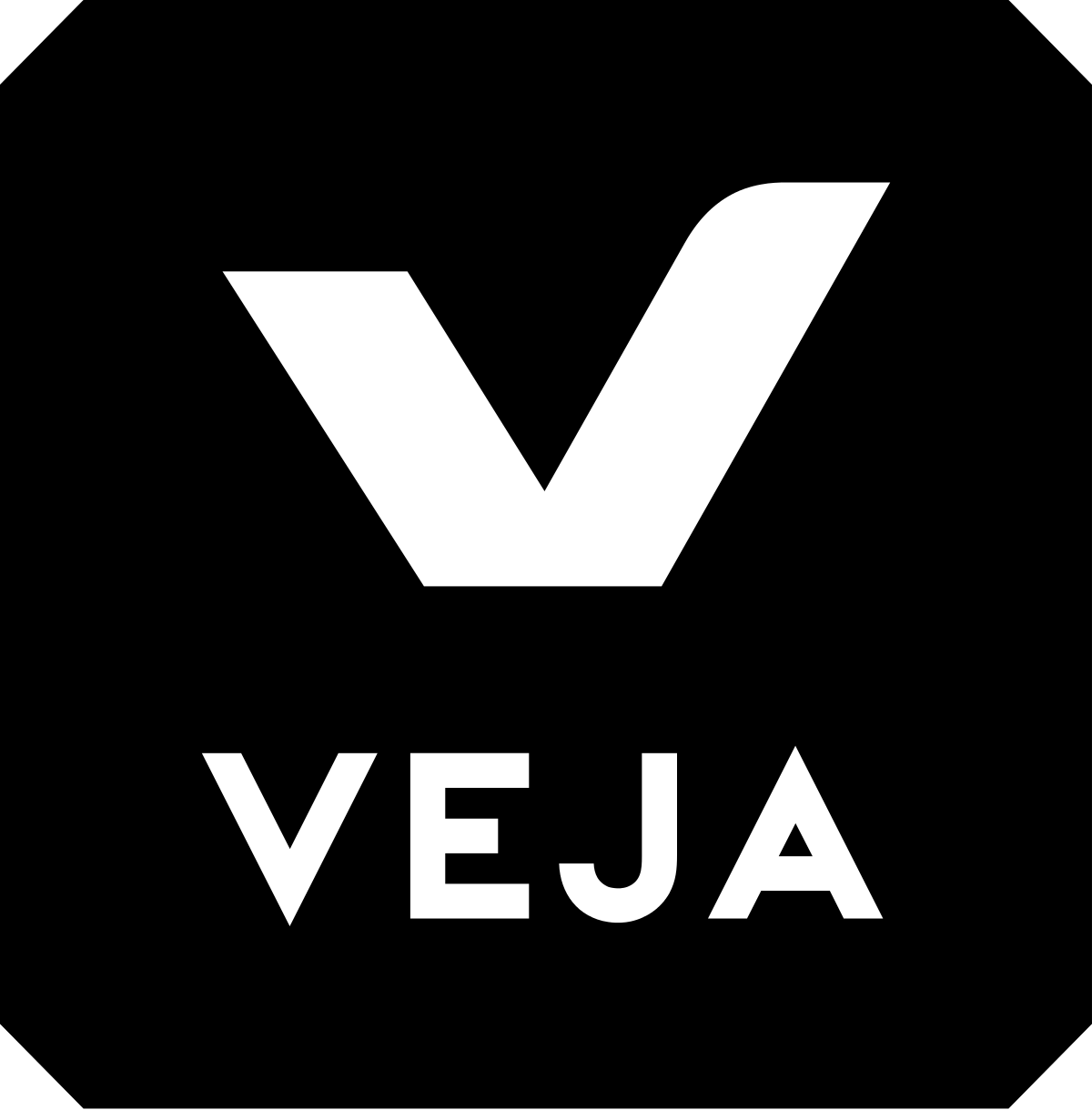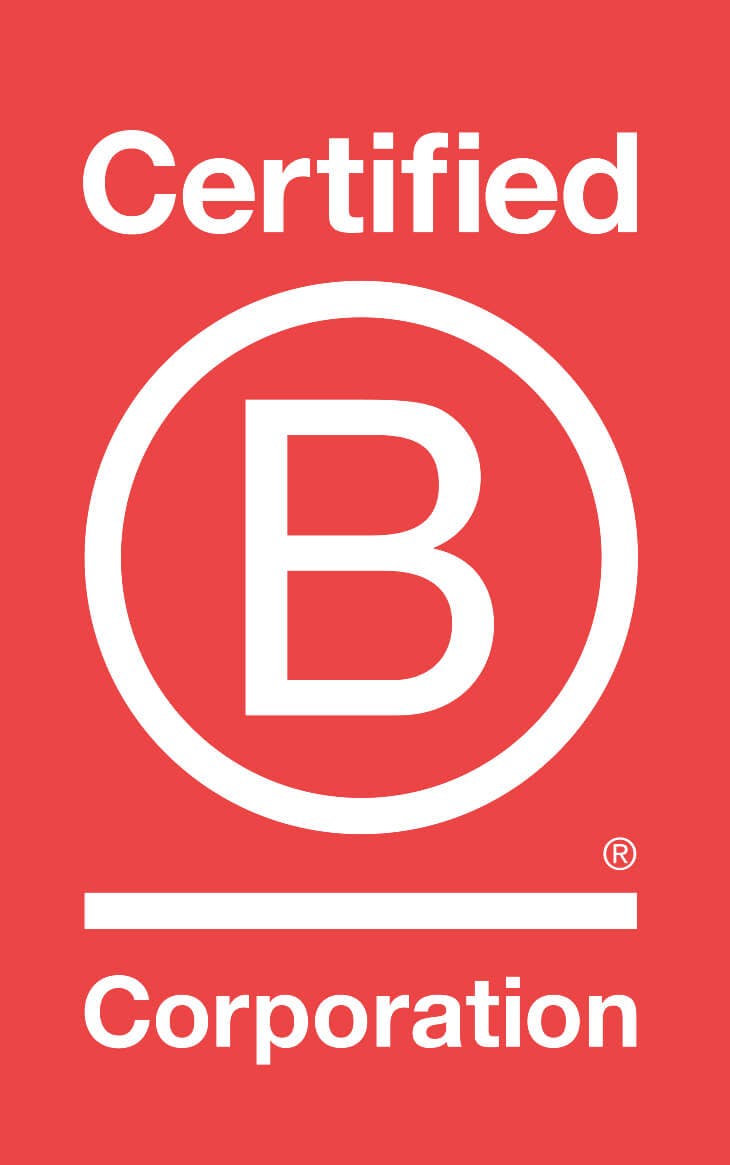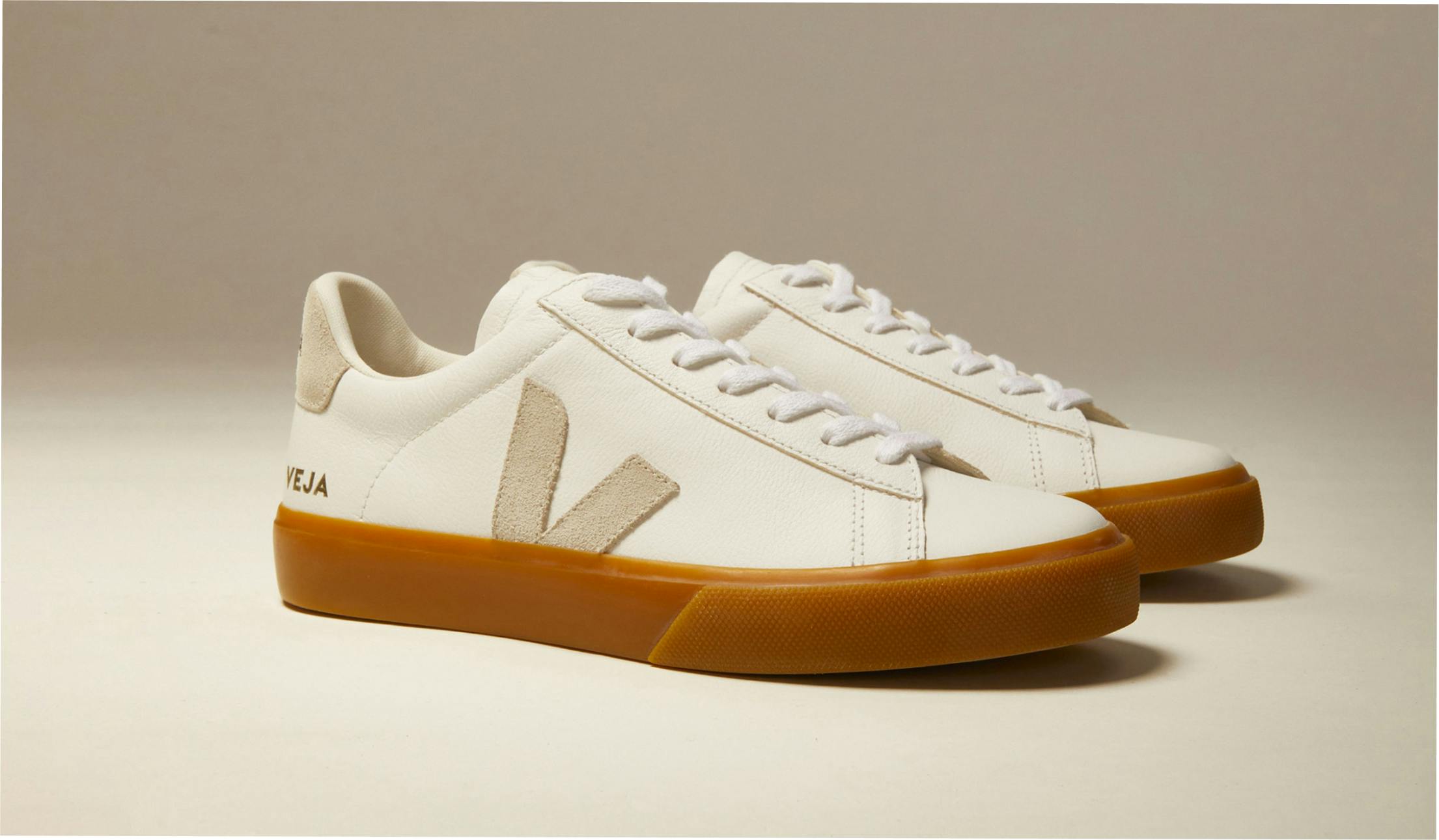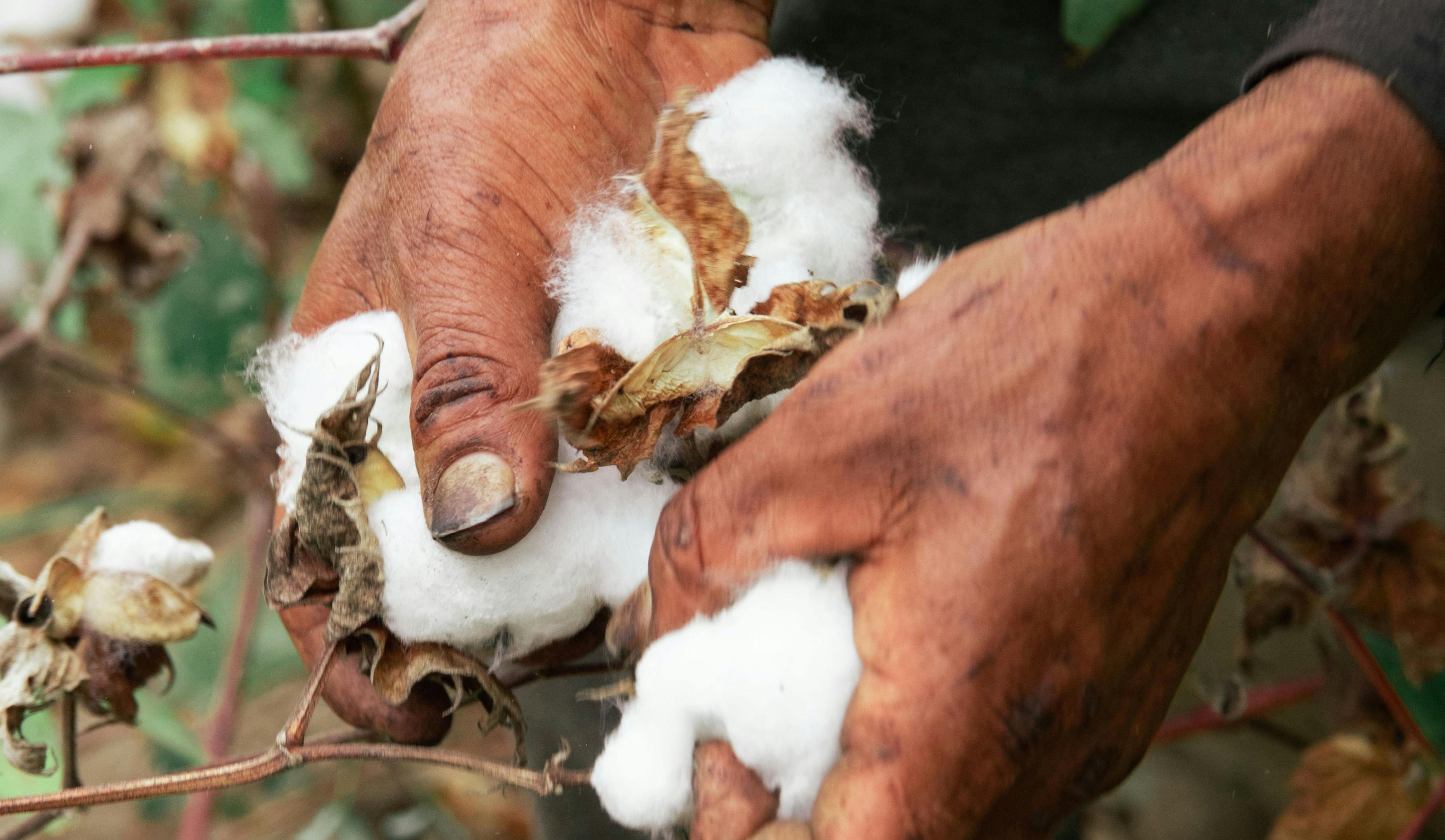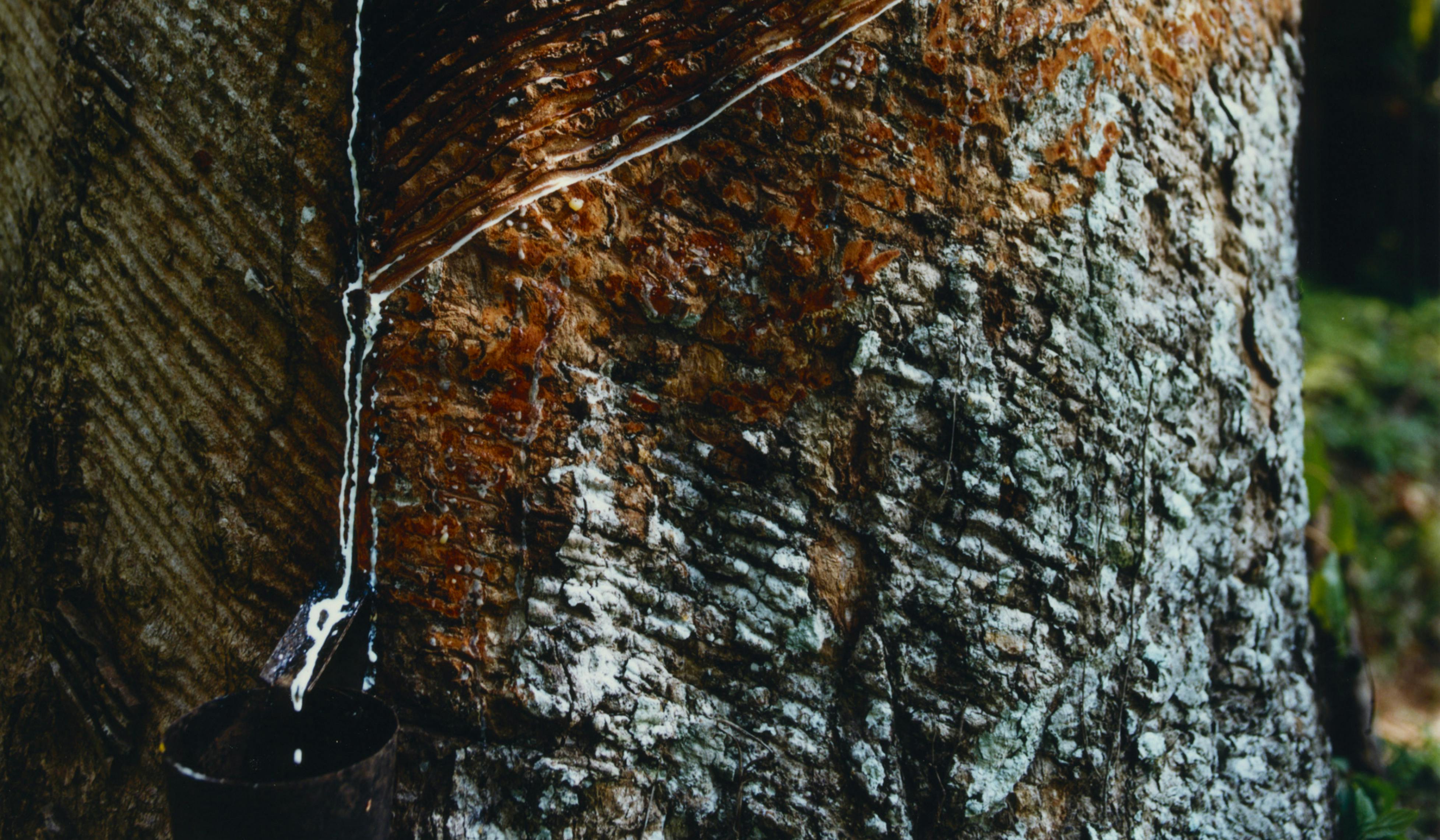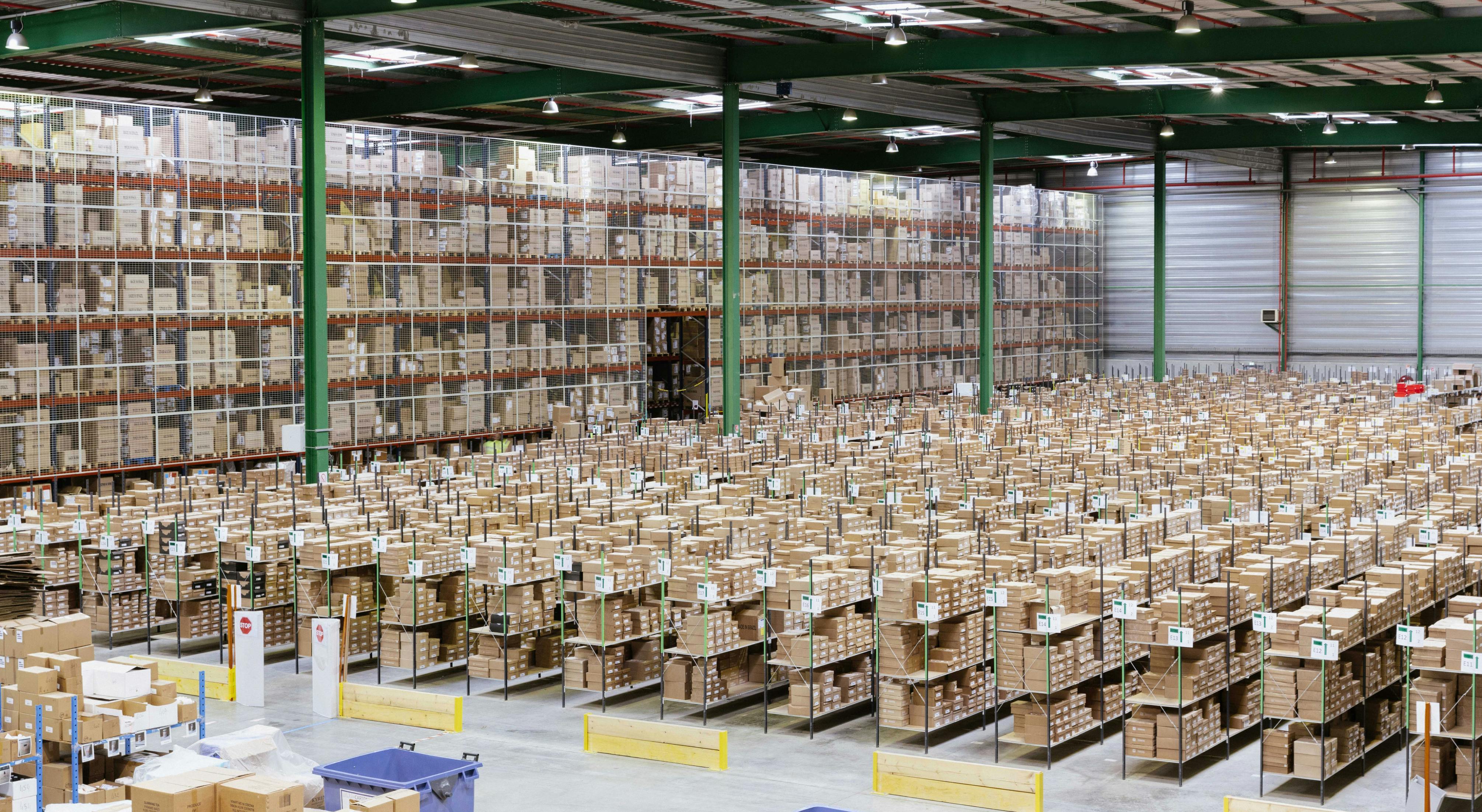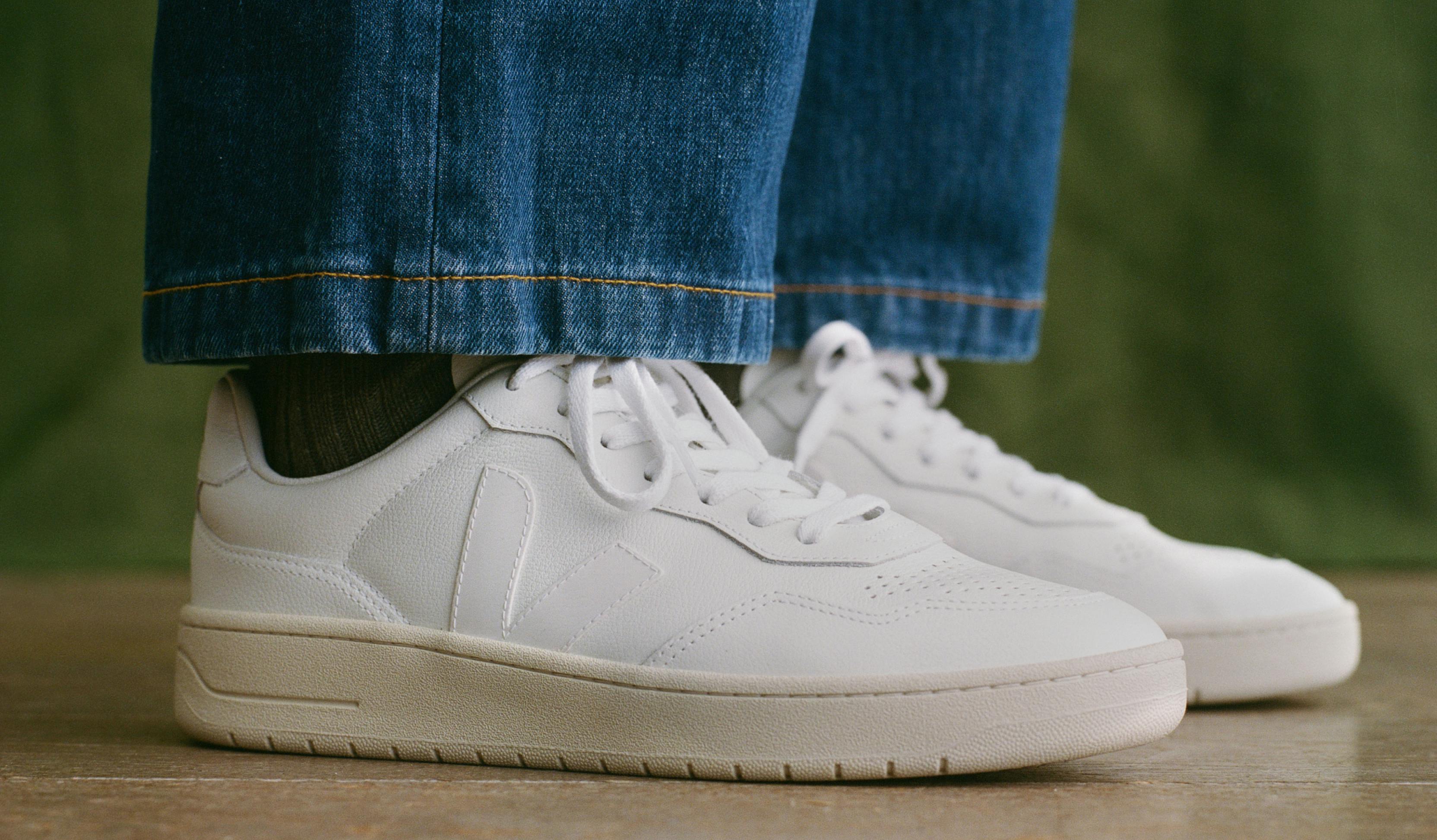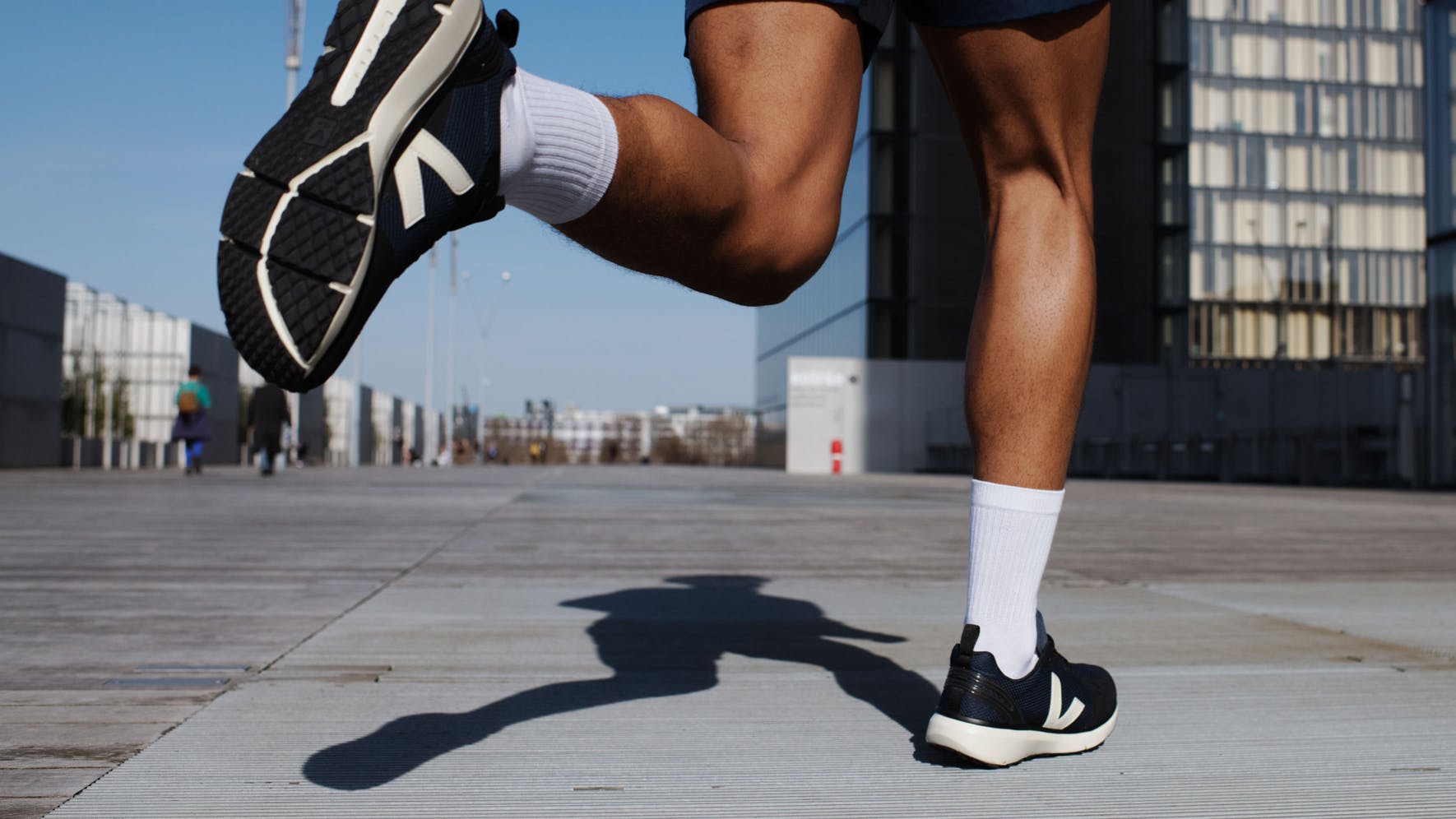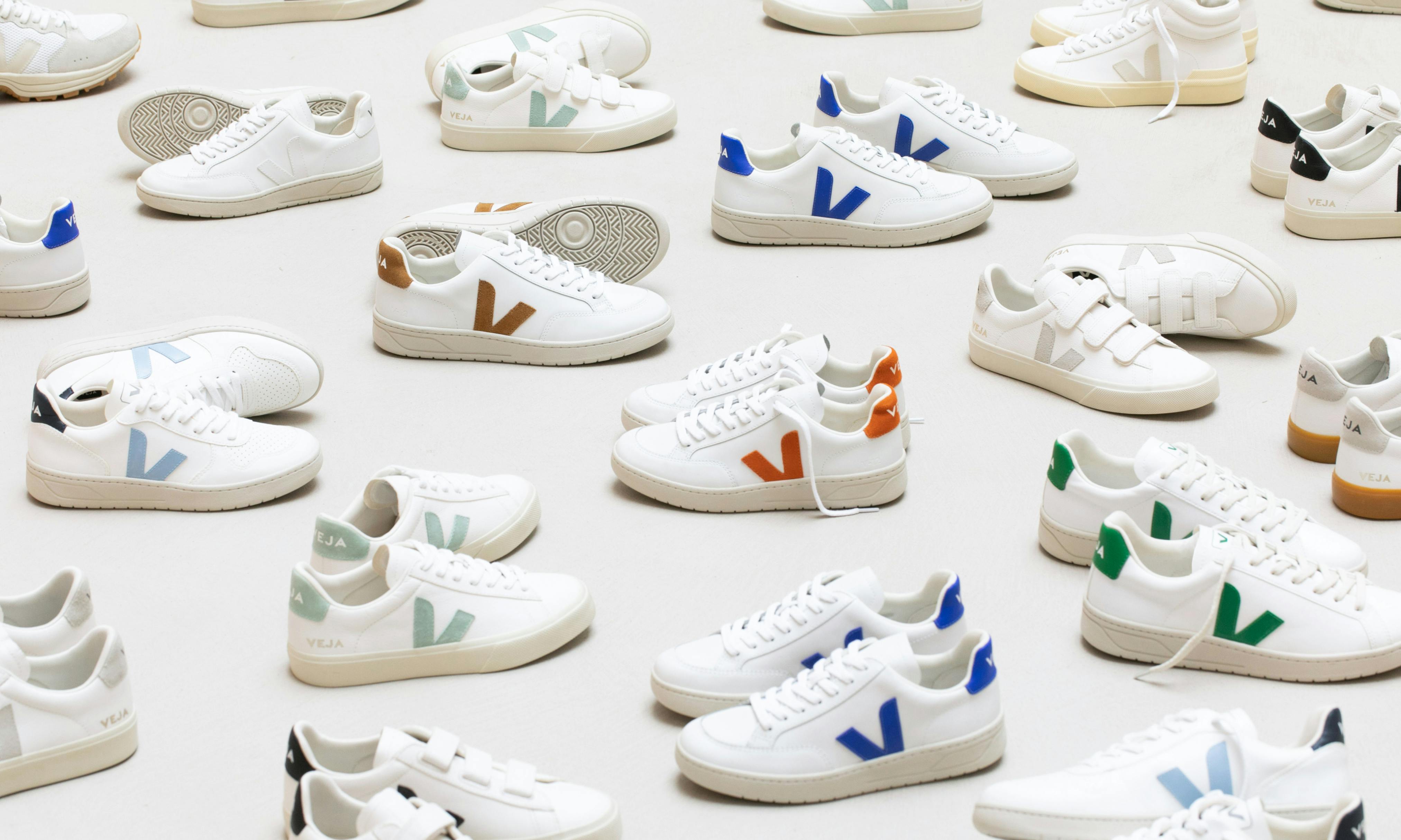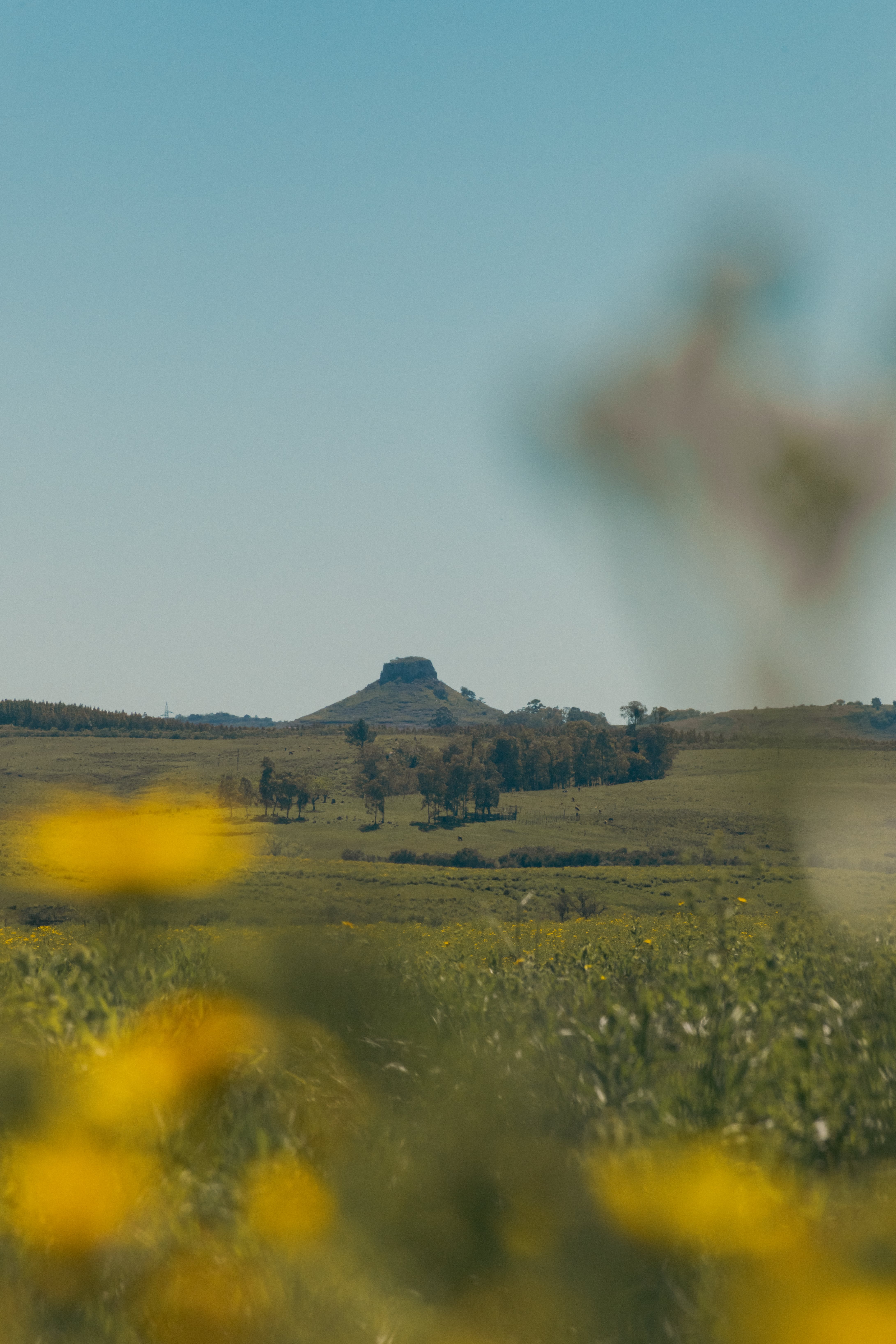
Transparency
How are sneakers made ?
VEJA means "look" in Portuguese, means looking beyond sneakers, and understanding how they are made.
How are VEJA's made? How much are laborers paid? How much does producers earn?
What are the chemicals used in a pair of VEJA shoes?
VEJA's transparency revolves around a few questions.
VEJA’s production stages
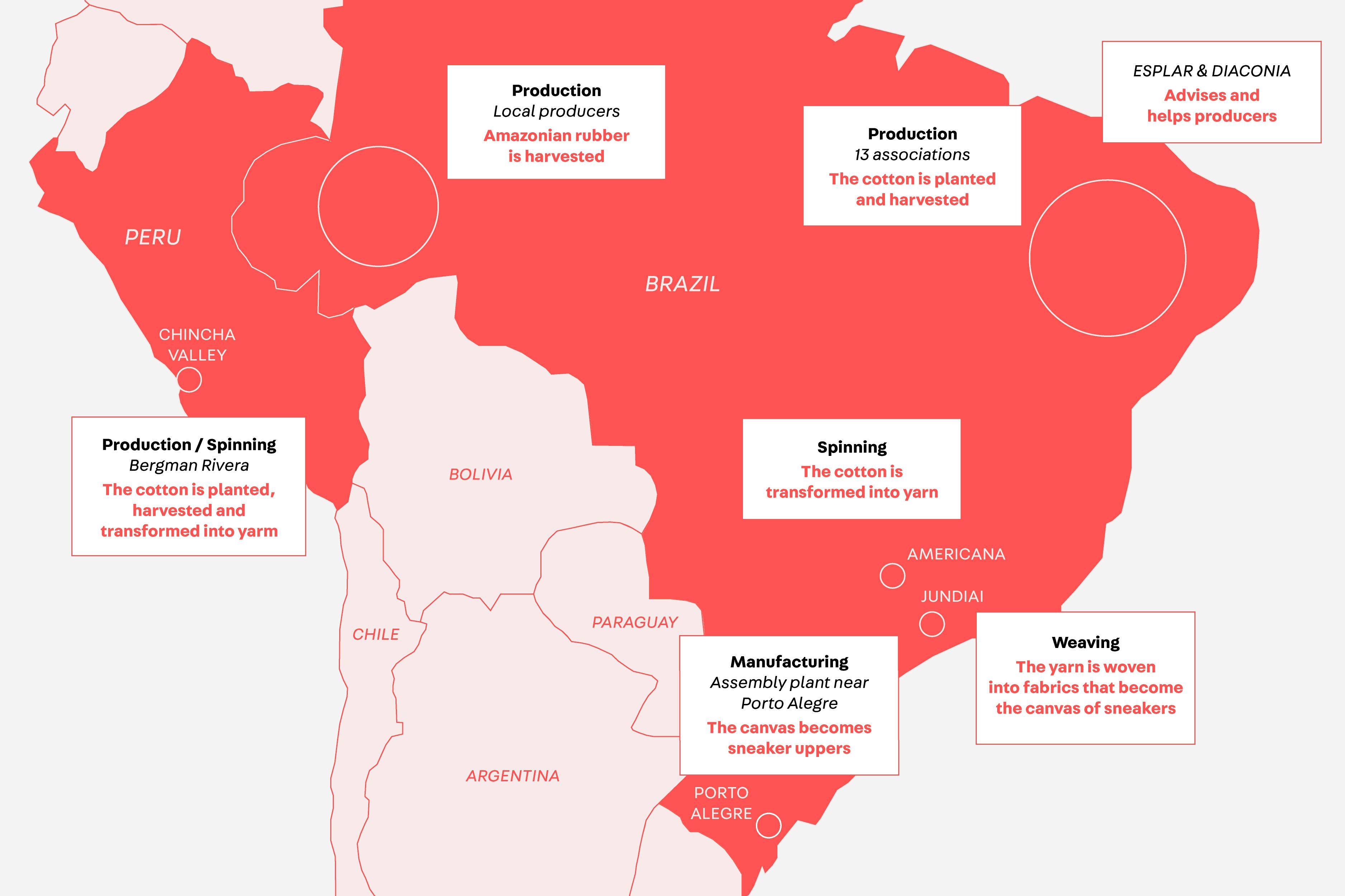
Making our way back up the production chain
Fair Trade
Since 2004, we've been using fair trade practices. This means we deal directly with producers, cutting out middlemen.
We pay upfront for harvests, often up to 50%. This means we buy our raw materials a year in advance of making sneakers.
At the beginning of the year, we establish the price by signing a two-year contract with producer families.
This way, producers know their earnings from the harvest before planting. The price ensures that producers can live well and reinvest in their farms.

Cotton producer
@ Studio VEJA
Transparency,
the future of environmentalism ?
VEJA is continuously analyzing the chemical safety of our sneakers to ensure that they do not contain toxic or polluting elements.
As of October 2021, our material suppliers must submit a test report specifying that their products do not contain the most commonly used hazardous chemicals in the fashion industry.
To facilitate the process, control, and monitor this across the production chain, our sourcing team has developed the VEJA Restricted Substances Policy.
Our Restricted Substances Policy helps identify and reduce the impact of these hazardous substances in our materials.
This document applies to all sneakers for women, men, and children.
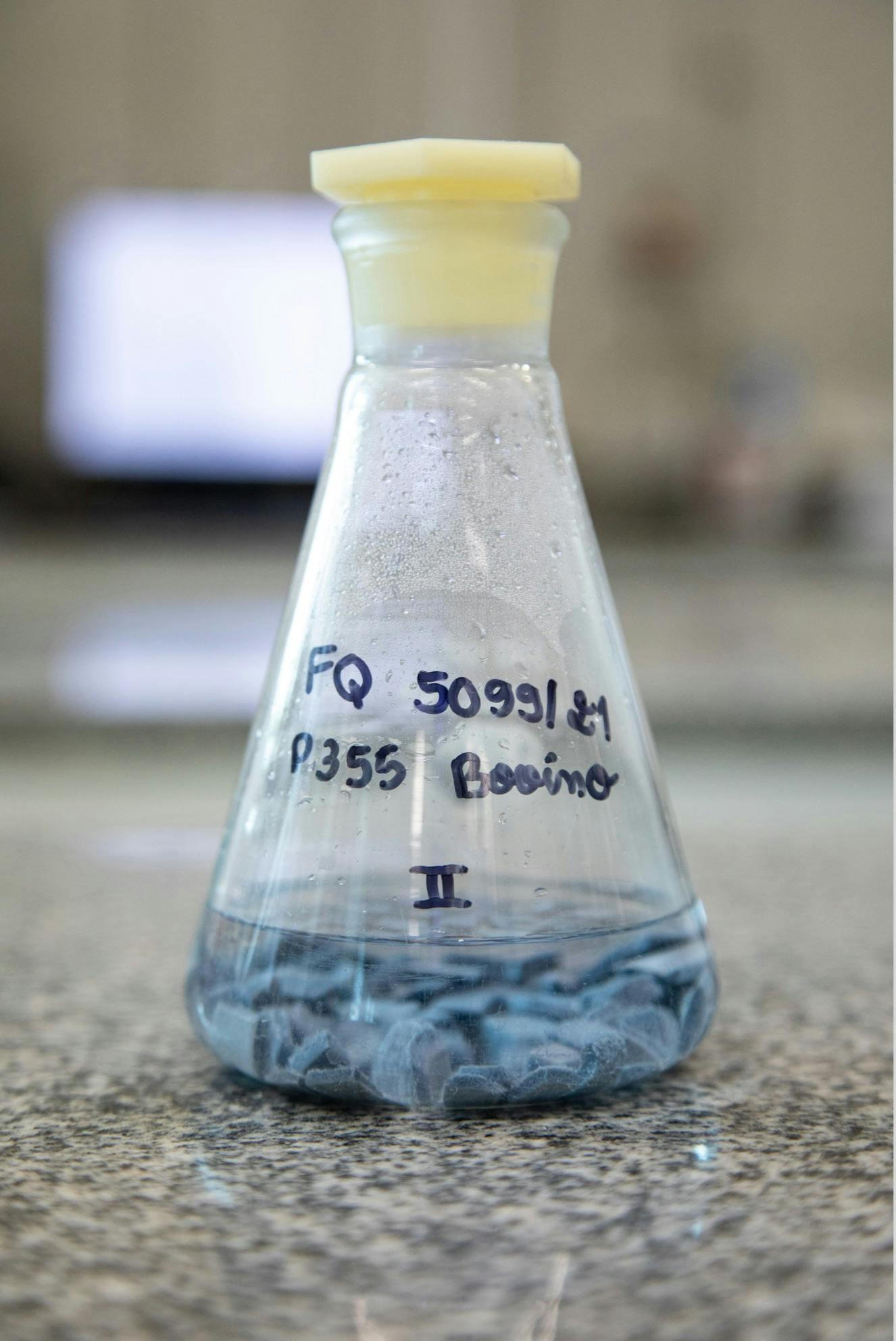
Chemical tests
2021
@Studio VEJA
What is B Corp?
B Corp certification assesses VEJA's global impact through a questionnaire covering wages, suppliers, team, environment, workplace, and governance.
In 2004, the founders launched VEJA from scratch. Their goal: to build the company they envisioned working for, emphasizing atmosphere, responsibilities, salaries, and equality.
Initiated in 2017, we were B Corp certified in December 2018. It took us almost a year to answer all the questions, and at the end of that year, some weaknesses began to become much clearer.
So B Corp will help us to know and underline our weaknesses as a project, and to create better goals and rules. It already gave us many ideas easy to implement, It validated also a lot of good news: for example, the money gender gap: 4 out of the 5 highest earners in the company are women.
We realized that after years of "doing "we had not taken much time to stop for a moment and write things down, so B Corp allowed us to formalize many things: the suppliers' code of conduct, available on the website, the employees' code of conduct or the employees' guide: a common guide for all the world teams (France, Brazil, US).
But there is still a long way to go. And B Corp will help us on this journey. VEJA is proud to be part of this group, which counts long-term role models such as Patagonia.
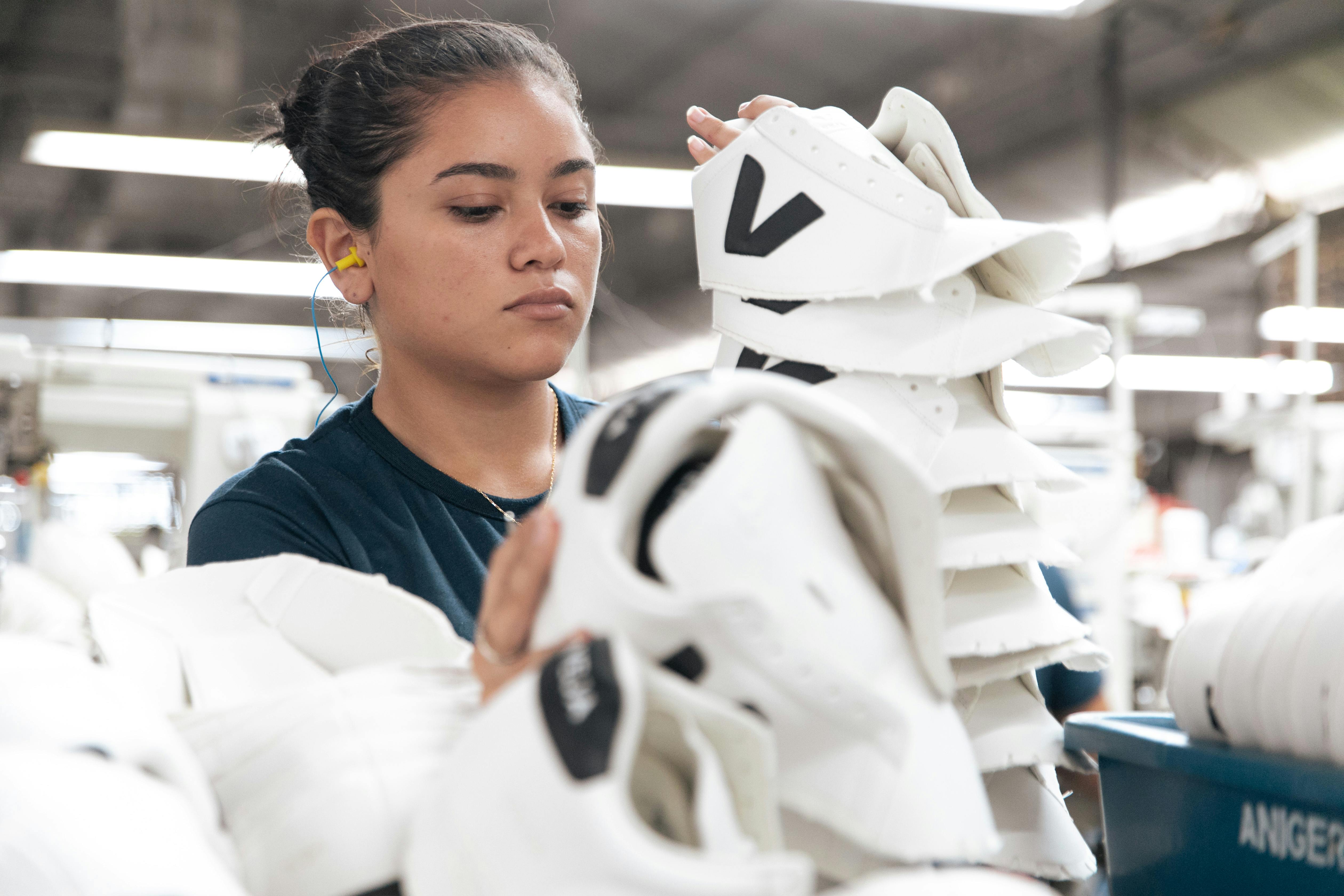
“Certified B Corporation” is a trademark licensed by B Lab, a private non-profit organization, to companies like ours that have successfully completed the B Impact Assessment (“BIA”) and therefore meet the requirements set by B Lab for social and environmental performance, accountability, and transparency.
It is specified that B Lab is not a conformity assessment body as defined by Regulation (EU) No 765/2008, nor is it a national, European, or international standardization body as per Regulation (EU) No 1025/2012. The criteria of the BIA are distinct and independent from the harmonized standards resulting from ISO norms or other standardization bodies, and they are not ratified by national or European public institutions.
VEJA code of conduct
This code clarifies an organization's mission, values, and principles, and a commitment to ourselves to remain honest and responsible in our actions and decisions.
VEJA qualifies its direct suppliers and all their factory workers on the code of conduct.
To recognize a situation and to be able to denounce it, each supplier employee counts with training on the subject.
We want to create an environment where everyone feels free to speak up.
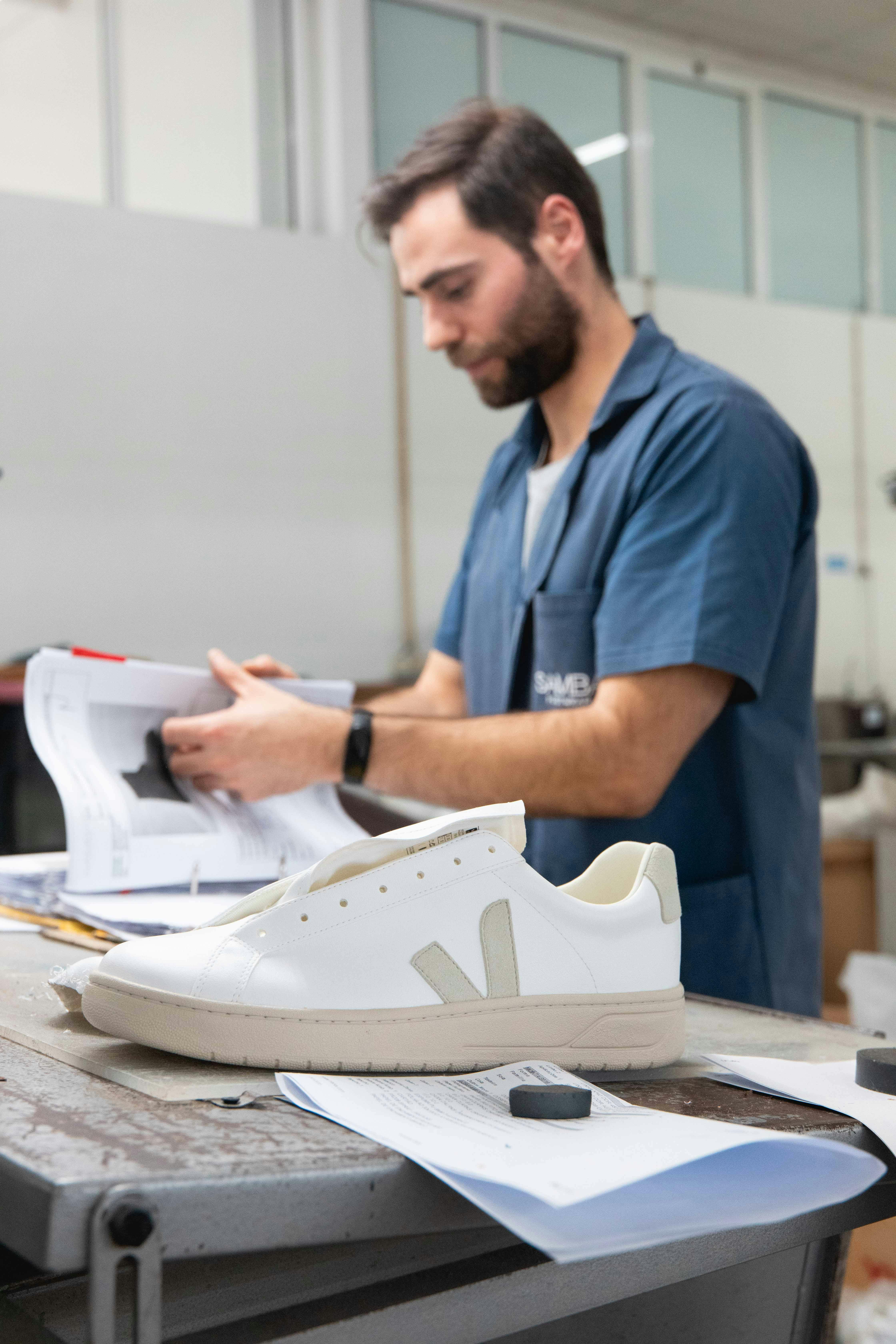
Production line employee
Porto Alegre, 2021
© Studio VEJA
Complaints procedure
The worker rights are available in all production locations and are regularly checked by our product team during visits.
This document states the VEJA code of conduct in Portuguese, the local language.
The document contains the contact details for complaints, where workers can inform about overtime or canceled holidays or other problems regarding worker's rights related to VEJA orders.
If there's a complaint, we'll investigate the cause. If we find it's due to our mistakes like poor planning or sudden changes, we'll review our processes to prevent it from happening again.
For all other causes, we would discuss with suppliers how the situation could be improved to prevent it from happening again.
Physical and mechanical tests
We also test, under the same conditions, the mechanical properties of our shoes.
Repeated movements (bending, friction, etc.) are carried out by machines on pairs of control sneakers selected at random. We then measure sole wear, seam resistance, etc.
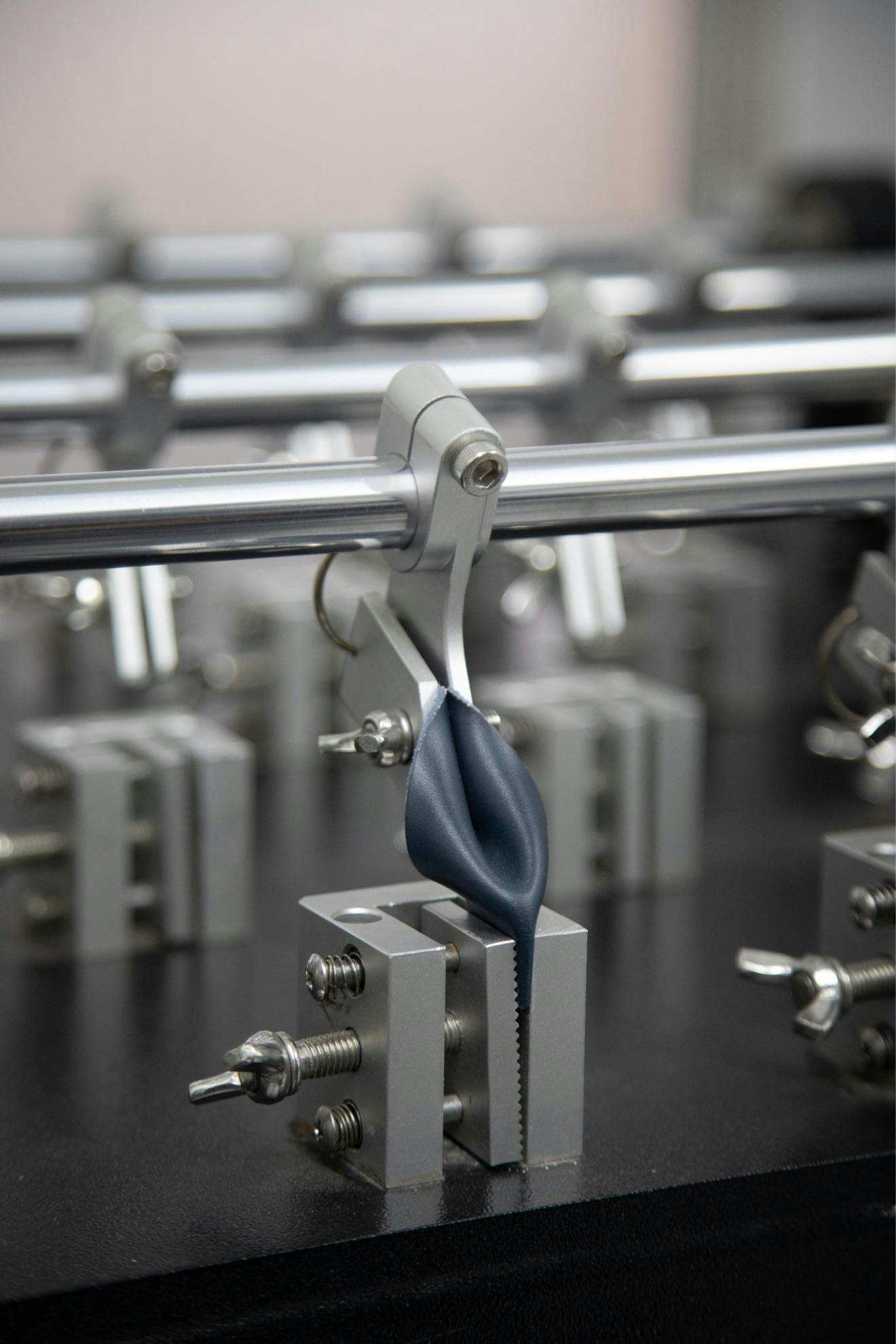
Mechanical tests
Porto Alegre, 2021
© Studio VEJA
